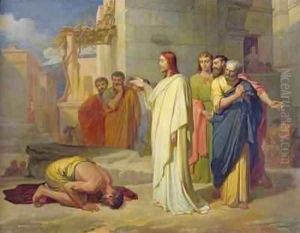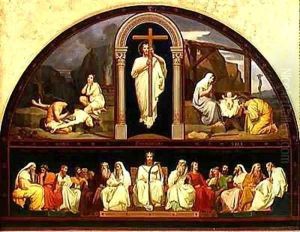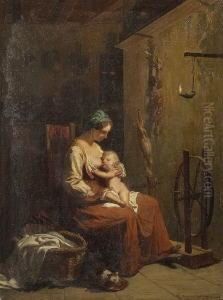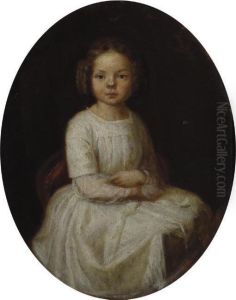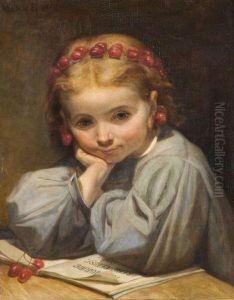Jean-Marie Melchior Doze Paintings
Jean-Marie Melchior Doze was a notable French painter born in 1827 in Nîmes, France, and passed away in 1913. His artistic journey began at a young age, influenced by the rich cultural heritage of his hometown, which is known for its ancient Roman monuments. Doze's passion for art led him to pursue formal education in the field, where he honed his skills and developed a distinctive style that would later define his career.
Doze's work is characterized by its romanticism and attention to detail, traits that were highly appreciated during his time. He was particularly known for his historical and mythological paintings, which not only showcased his mastery of the human form but also his ability to convey deep emotions and narratives through his art. His paintings often featured dramatic scenes filled with vibrant colors and intricate compositions, capturing the imagination of the viewer and transporting them to another time and place.
Throughout his career, Jean-Marie Melchior Doze exhibited his works in various prestigious venues, including the Paris Salon, where he gained critical acclaim and recognition among art enthusiasts and critics alike. His contributions to the art world were not limited to his own creations; Doze was also a respected teacher, sharing his knowledge and passion for art with the next generation of artists.
Despite his success, Doze remained deeply connected to his roots in Nîmes, often drawing inspiration from its history and landscapes for his paintings. His legacy lives on through his artworks, which continue to be admired for their beauty and emotional depth. Jean-Marie Melchior Doze's life and work exemplify the rich tradition of French painting in the 19th century, marking him as a significant figure in the history of art.
